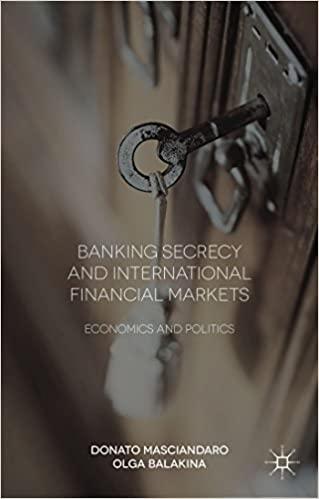Question
A company has a 11% WACC and is considering two mutually exclusive investments (that cannot be repeated) with the following cash flows: 0 1 2
A company has a 11% WACC and is considering two mutually exclusive investments (that cannot be repeated) with the following cash flows: 0 1 2 3 4 5 6 7 Project A -$300 -$387 -$193 -$100 $600 $600 $850 -$180 Project B -$405 $131 $131 $131 $131 $131 $131 $0
What is each project's NPV? Round your answer to the nearest cent. Do not round your intermediate calculations.
What is each project's IRR? Round your answer to two decimal places.
What is each project's MIRR? (Hint: Consider Period 7 as the end of Project B's life.) Round your answer to two decimal places. Do not round your intermediate calculations.
Construct NPV profiles for Projects A and B. Round your answers to the nearest cent. Do not round your intermediate calculations. Negative value should be indicated by a minus sign. Discount Rate NPV Project A NPV Project B 0% $ fill in the blank 10 $ fill in the blank 11 5 $ fill in the blank 12 $ fill in the blank 13 10 $ fill in the blank 14 $ fill in the blank 15 12 $ fill in the blank 16 $ fill in the blank 17 15 $ fill in the blank 18 $ fill in the blank 19 18.1 $ fill in the blank 20 $ fill in the blank 21 23.01 $ fill in the blank 22 $ fill in the blank 23 Calculate the crossover rate where the two projects' NPVs are equal. Round your answer to two decimal places. Do not round your intermediate calculations. fill in the blank 24% What is each project's MIRR at a WACC of 18%? Round your answer to two decimal places. Do not round your intermediate calculations. Project A: fill in the blank 25% Project B: fill in the blank 26%
Step by Step Solution
There are 3 Steps involved in it
Step: 1

Get Instant Access to Expert-Tailored Solutions
See step-by-step solutions with expert insights and AI powered tools for academic success
Step: 2

Step: 3

Ace Your Homework with AI
Get the answers you need in no time with our AI-driven, step-by-step assistance
Get Started


